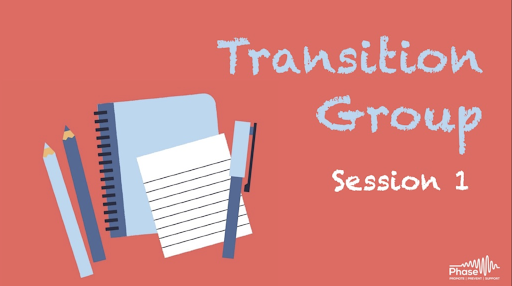Transition Groups

As we reach the end of the school year it’s all systems go here at Phase as we aim to really meet the needs of all our primary and secondary school young people before they level up in September.
I must say, the sessions that we deliver to our schools give me so much joy! The level of engagement, enthusiasm from both volunteers and the students really is evident and it’s creating such a positive impact.
With our primary schools, first delivering the GROW session for year 5’s to then delivering It’s Your Move in year 6 - you can see that our impact in teaching and practically showing the skills that can help them be resilient is really equipping them well. As for most sessions our team leaves feeling greatly encouraged and reassured that these year 6’s are ready for the transition to secondary school.
Even though most children are experiencing excitement and readiness to start secondary school, at Phase we’ve been offering an additional space for year 6’s to come where we can support them further in our Transition Groups. We get to meet in small group sessions after school, at the secondary school that they are meeting, which is a great opportunity for them to start familiarising themselves with their new environment.
Together we’re able to chat further about some of the worries that they may be feeling, and explore them further and look at ways they can overcome each of these worries. We also get to tour the school so they can continue to familiarise themselves and explore other challenges, changes and dilemmas that they may encounter all with an aim to make them fully at ease and even create the opportunity to meet and make new friends.
If your child is transitioning from year 6 to year 7 or going through a significant change in their life, here are some top tips that you can share with them as they cope with change.
Going through change can be scary and challenging, but sometimes, like these top tips, it can just be a small thing, which can make a big difference:
- Communicate
Creating a space for them to talk and keep talking, texting, listening, hearing, sympathising, smiling, reassuring, checking, sharing, suggesting, encouraging, respecting can really help a young person
- Work Together
Share ideas about how to create an action plan that can really help put at ease some things they may be holding/carrying. Tackle things together with a problem-solving approach and be forward-looking. Also show them that we can all get things wrong and try to stay calm when your child is feeling distressed
- Remain positive & Encourage independence
Help them to move positively from child identity towards teen identity. Increase their responsibilities. Be positive whenever they act maturely. Be aware of your child’s changing needs. Sometimes it might feel like one step forwards, two steps back but celebrate and enjoy their achievements.
- Be an anchor & have fun
In times of change you can be that constant whether it’s family, home or just keeping routine. And provide lots of light relief such as doing stuff together, laughing together and going outside.
- Get learning and be wise
Be involved, find out more and talk about topics such as social media and the benefits and dangers. Or maybe read up on current affairs and see what it’s like to be young in the current world. As children discover new things, try to be interested, non-judgemental, a guide and give boundaries. Remember to see it from all sides, listen to their point of view, choose your words carefully and act on warning bells.
At every primary school we have visited Hitchin and surrounding villages, the students have been given a booklet called It’s Your Move, which is a great resource packed with advice, top tips and real-life testimonies.
You can find additional support and resources to help pupils, parents and carers to cope with the changes and transitions they experience during their time at school at:
by Alex Marini-Williamson